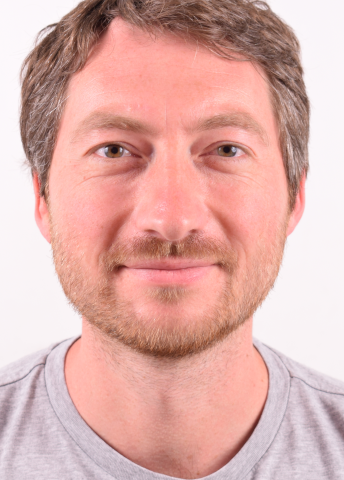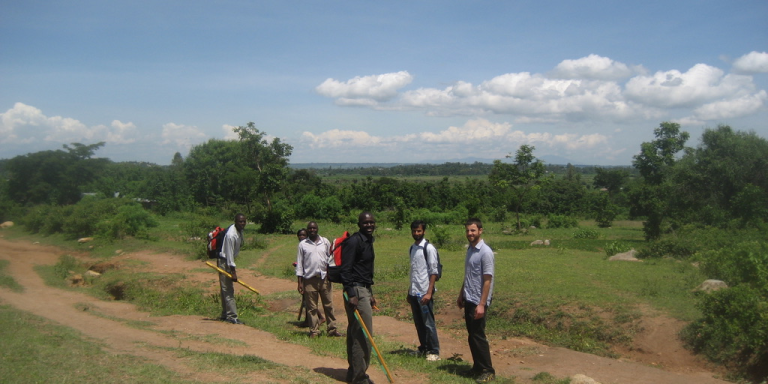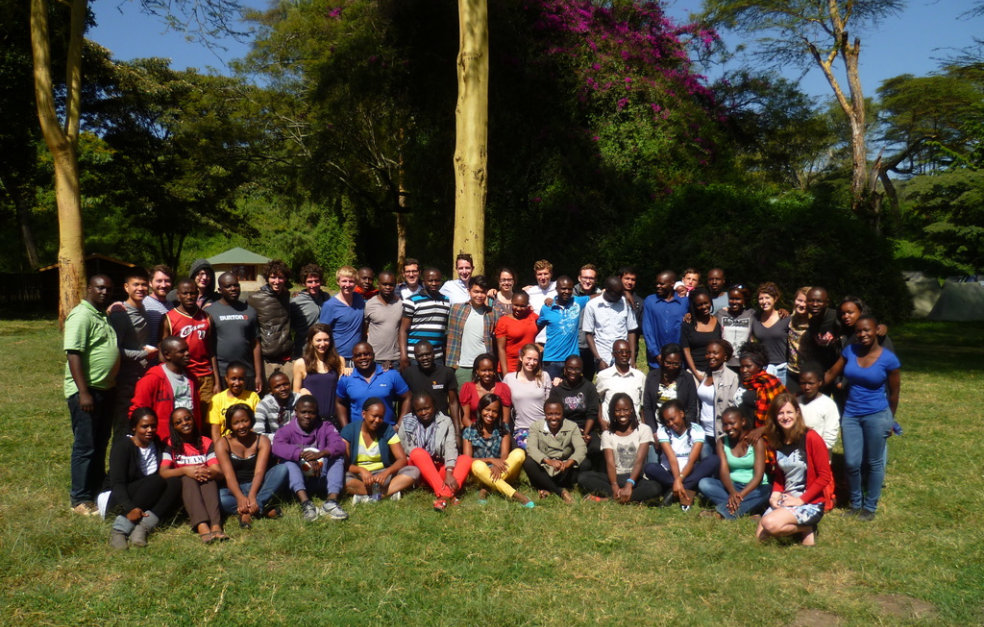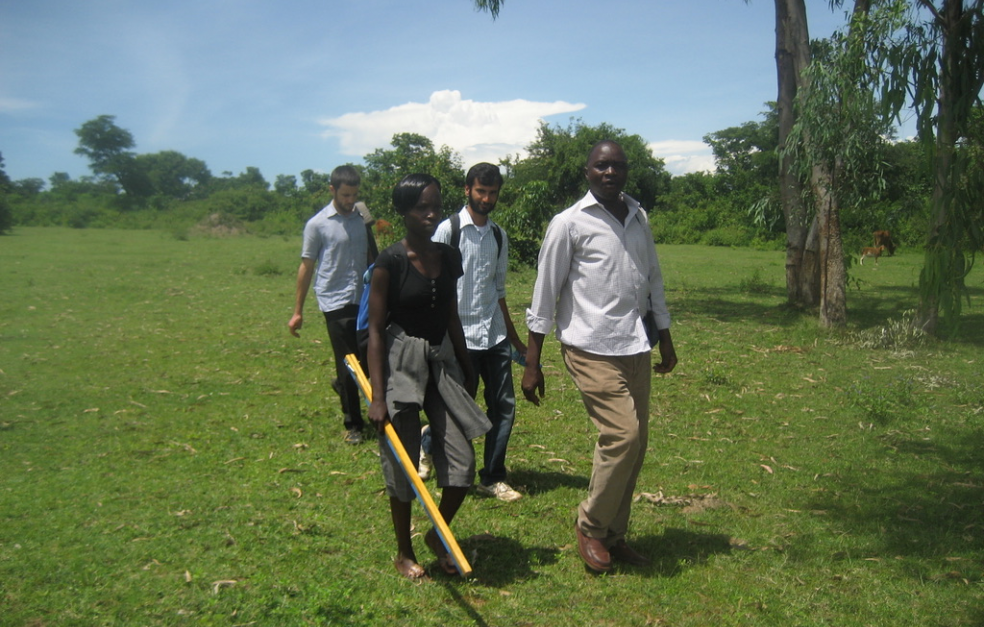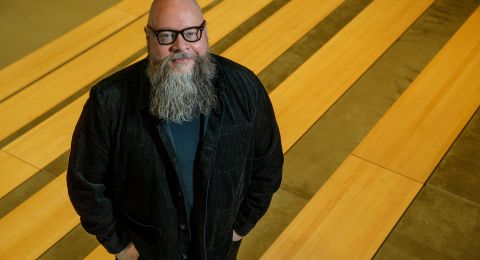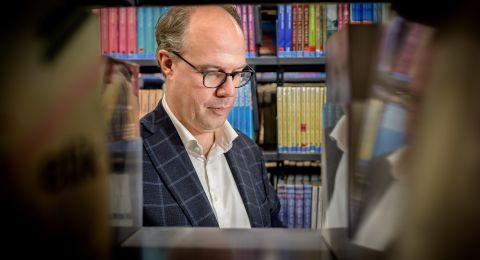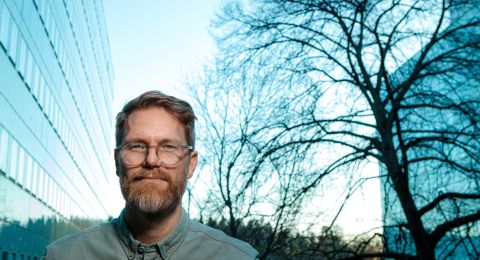An unconventional approach to fighting poverty is being tried out in Kenya. Poor families are given a cash sum to use entirely as they see fit. Wallenberg Academy Fellow Johannes Haushofer is studying how the money impacts their lives and wellbeing, as well as the socioeconomic effects of the payments.
Johannes Haushofer
Professor of Economics
Wallenberg Academy Fellow 2019
Institution:
Stockholm University
Research field:
The boundary zone between psychology, behavioral economics and development economics. One fundamental question is whether poverty has specific psychological consequences, and whether those consequences in turn impact economic behavior.
In essence, Haushofer researches on human wellbeing. Having studied psychology, physiology, and philosophy, and with PhDs in neurobiology and economics, he benefits from an arsenal of methods as he examines how money impacts our lives and wellbeing.
“A long-standing scientific question is whether money can buy you happiness. It’s an important question. We economists are often criticized for focusing on growth, income and money, but they are really only different ways of measuring welfare.”
An acceptable standard of living requires access to food, clothes, health care and accommodation. In the absence of basic security, we are prone to suffer from stress, depression or other health problems.
“It’s hard to be happy and content if your basic needs are not met.”
Support is traditionally given in the form of food parcels or targeted scholarships, for example. This kind of support alleviates the most pressing needs, but perhaps cash transfers could be equally or more effective.
Two years’ income
Some non-profit organizations, such as the US NGO GiveDirectly, are adopting a new approach. Some of the poorest families are now receiving a lump sum equivalent to two years’ income – money they are free to use as they wish. Haushofer elaborates:
“The support is designed to treat people as adult individuals. Households can use the money flexibly as needs arise. Some families might want to buy a cow; others might want to start their own bicycle taxi firm or invest in their children’s education.”
Back in the 1950s the economist Milton Friedman launched the concept of “negative income tax”. His idea was that people with very low incomes should receive money from the state instead of paying tax.
GiveDirectly, an NGO founded in 2012, has revived the old concept and is trying it out in a new form. The public can donate money to their fund. Everything except a small administration charge goes straight to people living in poverty.
“We researchers are working with GiveDirectly to carry out our studies, but some of our research is being conducted independently.”
Haushofer is evaluating the effects of the cash grants in controlled field studies in Kenyan villages. Participants are interviewed on topics such as their life situation, their health and how they use the money. Ethical considerations are very much to the fore, in order to protect the privacy and well-being of those involved.
The results so far are encouraging. The lives of the recipient families have improved markedly.
“Our studies show that the money is being used meaningfully to combat poverty. Very little is spent on alcohol, tobacco or gambling, for example. Domestic violence has also fallen. Instead, families are using the cash to make productive investments. In some cases the outcome is better if women rather than men receive the payments, although the differences are small.”
Haushofer now wants to find out how recipients are impacted over the longer term. The question is whether the positive effect is sustained. How are consumption, health, level of education and wellbeing affected after five or ten years? Is there potential for families to turn their lives around completely?
“The answer probably lies somewhere in between, but we need to know more precisely so that politicians have some kind of basis for shaping welfare policy in the best way.”
Socioeconomic impact
Haushofer also wants to study the wider socioeconomic effects of unconditional cash transfers. He will be comparing regions in which many households receive payments with those where this form of support is not as widespread. Economists often talk about the risk of inflation, but it may be that the economy benefits instead.
“Among other things, we want to see how prices and wages change. It’s also useful to ascertain whether these transfers can stimulate economy activity, even for households who have not received these payments.”
“It’s fantastic to have been awarded this grant. I’ve been able to transfer my research to Stockholm University, where I feel at home. The funding is generous and flexible – it allows me to decide how best to use the money. In a way, it’s like my research, where I’m studying how families can freely dispose of the financial assistance they receive.”
Haushofer is also studying how cash measures up against other forms of support, such as a psychotherapy program. The results to date show that cash is more effective, not only in improving finances, but also for mental health.
“It was surprising that this particular psychotherapy program was found to be ineffective, without any measurable impact on either financial situation or mental health.”
The old expression “cash is king” seems to hold good. Cash simplifies life, not least for those who have almost nothing.
“Cash transfers enable the individual to develop a business, a smallholding or a kiosk, and support their family. They feel less stressed and more at peace.”
Haushofer hopes his research will provide new socioeconomic insights.
“Hopefully, we’ll be able to show decision makers how they can make cost-effective use of the welfare funds available. Ultimately, the aim of the research is to help alleviate world poverty.”
Text Nils Johan Tjärnlund
Translation Maxwell Arding
Photo (c) Busara Center for behavioral economics, Johannes Haushofer
